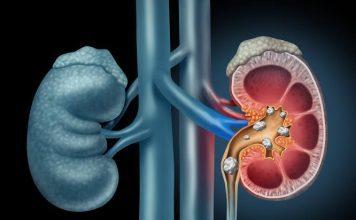Experts in the field of kidney care have advised individuals in Nigeria to consume a sufficient amount of water each day, as this may decrease the likelihood of developing kidney stone disease.
These medical professionals, known as nephrologists, explain that regular water intake can aid in flushing out crystal deposits in the body that could potentially lead to kidney stone formation.
They emphasize that inadequate water consumption can contribute to the formation of crystals, which typically do not cause symptoms until they move within the kidney or pass into the tubes connecting the kidneys and bladder, resulting in severe pain.
According to the Mayo Clinic, kidney stones, also known as renal calculi or nephrolithiasis, are solid deposits composed of minerals and salts that form inside the kidneys. The clinic explains that these stones develop when there are an excessive amount of substances that promote crystal formation, such as calcium, oxalate, and uric acid, in the urine.
The presence of these substances in concentrated urine encourages the creation of an environment suitable for kidney stone formation. Dehydration, excessive calcium, diet, certain medical conditions, supplements, and medications are among the contributing factors to this condition.
In light of the increasing cases of kidney stones in medical facilities, experts recommend that Nigerians increase their water intake to prevent the formation of these painful stones.
They also note that various types of kidney stones, including calcium, struvite, uric acid, and cystine stones, can affect the kidney in different ways. Calcium stones, which are the most common type, can be exacerbated by a high-salt diet, as excessive salt intake increases the amount of calcium that the kidneys filter, increasing the risk of kidney stone development.
Nephrology, said, “Most kidney stones are calcium stones, and usually in the form of calcium oxalate. Oxalate is a substance made daily by your liver or absorbed from your diet.
“Certain fruits and vegetables, as well as nuts and chocolate, have high oxalate content and one needs to watch it. Too many nuts may not be healthy for someone who already has stones or someone with a family history of stones.
“High doses of Vitamin D, intestinal bypass surgery, and several metabolic disorders can increase the concentration of calcium or oxalate in urine.”
He emphasized two primary phases in the development of kidney stones, clarifying that the initial phase entails severe agony resembling the pains experienced during childbirth, whereas the subsequent phase involves painful urination accompanied by blood, which could potentially result in kidney failure.
Regarding treatment, he mentioned,
“CT scan can detect the presence of crystals. If they are mild, the patient is advised to increase water intake significantly to dilute the crystals and facilitate their elimination through urine.
“The disease mechanism resembles salt in water, depending on the stone type. When there’s water present, salt precipitates. Similarly, with kidney stones, ample water intake aids in dissolving the crystals, allowing them to be expelled through urine.”
He also mentioned another approach involving laser treatment to break down the crystals which can then be flushed into the bladder for expulsion through urine. Although medications are an option, surgery may be necessary for severe cases.
Furthermore, he emphasized the importance of staying hydrated and drinking plenty of water to prevent the formation of kidney stones once the kidneys start producing them. Supporting this, Dr. Fidelis Okechukwu, a Consultant Nephrologist at Iyi-Enu Mission Hospital in Ogidi, Anambra State, highlighted the role of family history in predisposing individuals to kidney stone disease.
He recommended individuals with a family history of kidney stones to maintain adequate hydration, stating,
If someone in your family has had kidney stones, you are more likely to develop stones, too.
“If you have had it once, you are at increased risk of developing another. Not drinking enough water each day can increase your risk of kidney stones. People who live in warm, dry climates and those who sweat a lot may be at higher risk than others.
“Gastric bypass surgery, inflammatory bowel disease, or chronic diarrhoea can cause changes in the digestive process that affect your absorption of calcium and water, increasing the amounts of stone-forming substances in the urine.”
A study titled ‘Kidney Stone Disease: An Update on Current Concepts,’ authored by Tilahun Alelign and Beyene Petros and published in the National Library of Medicine, highlights kidney stones as a rising urological concern affecting approximately 12% of the global population.
The authors observed that despite advancements in therapies for treating urinary stones, the prevalence of urolithiasis is on the rise worldwide.
According to the research, factors such as renal cell damage, crystal retention, cell apoptosis, and substances that either inhibit or promote stone formation all contribute significantly to the development of kidney stones.
“These seem to be critical targets that lead to developing a novel strategy to prevent kidney stone disease and drugs against kidney stones,” the study mentioned.
